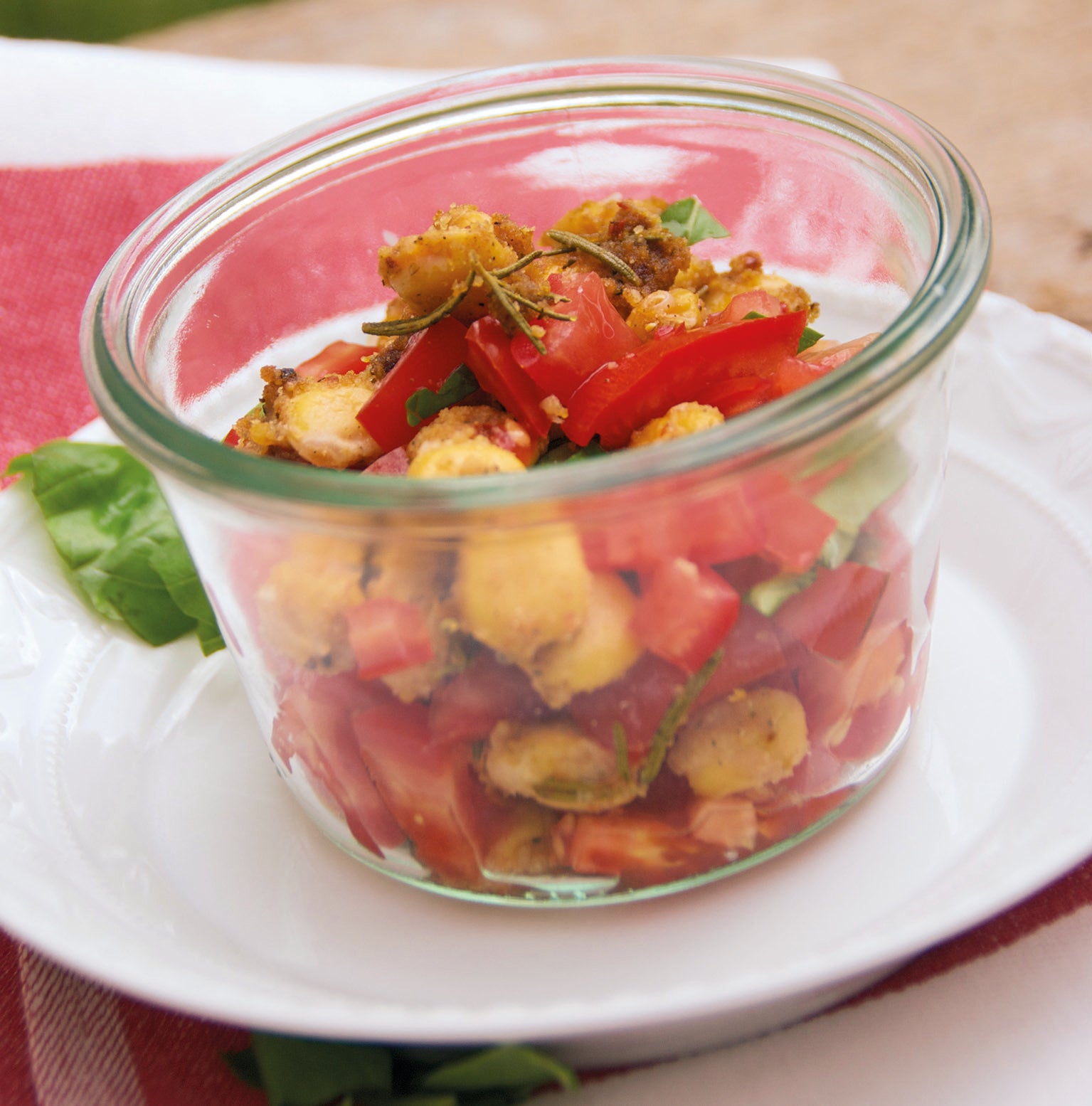
Barbara Rias-Bucher: "Sweet lupins are important food plants"
Barbara Rias-Bucher: "Sweet lupins are important food plants"
"Sweet lupins, the edible 'wolf beans', are important food plants that people have used for many generations; for vegans, lupins are one of the most important sources of protein." In an interview , nutrition expert and cookbook author Dr. Barbara Rias-Bucher , who recently published her new guidebook "Lupins" , talks about the importance of sweet lupins for the supply of plant protein, but also for climate protection and health care.
Most people know wolf beans as colorful flowers in the garden, but not so much as a crop and versatile food. What are the differences and why does the "wolf bean" deserve more attention?
Rias-Bucher: Garden lupins are not edible; firstly, their seeds are much too small and secondly, they contain lupanine, a bitter and harmful substance from the group of alkaloids. Sweet lupins, i.e. the edible "wolf beans", are important food plants that people have used for many generations; for vegans, lupins are one of the most important sources of protein.
Botanically, lupins are legumes and are extremely rich in important micronutrients and bioactive substances as well as high-quality protein and lots of fiber. What are their advantages compared to peas, beans and lentils, for example?
Rias-Bucher: In terms of the quantity and quality of protein, lupine seeds surpass other plant-based foods and even legumes, which are already high in protein: With a protein content of between 36 and 48 percent, the seeds contain all essential amino acids, including lysine, which is otherwise only found in small quantities in plants; lysine is an essential component of collagen, which strengthens our connective tissue. Studies have also shown that lupine protein can lower cholesterol levels in the blood.
Growing nutrient-rich crops like lupine not only helps reduce health risks, but also protects the environment and climate. Why is that?
Rias-Bucher: In general, the cultivation of protein-rich plants is desirable for climate protection and health care. This is because it could reduce meat consumption, reduce livestock farming and reduce emissions. Lupins have been cultivated as a crop and used as food since ancient times.
Is it worth growing sweet lupins in your own garden?
Rias-Bucher: From my own experience, I would advise against it, because the plants have very deep roots and the main root is so strong that it can even penetrate soil compaction into deeper layers. This is extremely useful for the rehabilitation of agricultural areas that have been damaged by intensive cultivation and heavy machinery: the large lupin fields are ploughed up so that the root system is broken down, and the soil is evenly fertilized and loosened by the resulting biomass. In the home garden, growing sweet lupins is firstly not particularly productive and secondly it is labor-intensive, because you have to dig deep after the harvest to make room for subsequent crops.
Unlike soy or grain, lupin products are not yet as widespread. What foods or ingredients made from lupin are now available, and where is the best place to get them?
Rias-Bucher: Lupin flour and groats are easy to get, often even in the organic shelves of large supermarkets. I have not found lupin flakes, dried and pickled lupin seeds or lupin tempeh in any health food stores, health food stores or large organic supermarkets. You also have to look for yoghurt, ice cream and drinks made from lupins. So my advice: you can now find online shops that specialize in lupins and send the products individually, sometimes mixed as a "kit" to try out. And if you are vacationing in the south, you can buy lupin seeds in brine, because in Spain, for example, lupins are a component of tapas.
You can even use lupins to replace eggs in baking. How does that work?
Rias-Bucher: Just like eggs, lupins contain lecithins, substances that combine with both fat and water and make things like mayonnaise smooth or literally hold dough together. Baking with lupin flour is very simple: you mix all the ingredients as you would in an all-in-one dough. However, you will need a little more water because eggs are made up of about 70 percent water.
Shouldn’t you just avoid animal protein altogether?
Rias-Bucher: Basically, you don't have to do without anything, because we humans are omnivores. Although that is often forgotten in some nutritional trends. Animal protein is not harmful per se, it's just the amount that matters, and that is far too high in the Western diet. That's why nutritional doctors recommend firstly reducing protein in general and secondly also eating plant-based protein. Cutting meat and eggs makes sense, because only we as consumers can reduce or even end the unspeakable factory farming. If people stop eating eggs, it is not worth it for producers to keep chickens under conditions that defy all reason. Because human reason also includes ethical behavior.
You have been working with wholesome and vegetarian/vegan nutrition for many years. Why are people in industrialized nations increasingly suffering from cancer and heart and circulatory diseases, and what can plant-based food do to combat this?
Rias-Bucher: One-sided and incorrect eating habits with a high consumption of animal products, white flour products, sweets, sugary and/or alcoholic drinks can lead to over-acidification of the organism. The result is metabolic disorders, which in turn are harmful to health. Plant-based foods, on the other hand, not only ensure a balanced acid-base balance; they also make a crucial contribution to relieving the liver. Foods rich in fiber such as pulses, whole grains, vegetables and fruit nourish our intestinal flora, while a lot of animal protein promotes putrefaction in the intestines. This produces ammonia, a gas that blocks the breakdown of acid in the liver.
Allergies and food intolerances are constantly on the rise, and lupins, like all other legumes, are considered healthy but potentially problematic foods. What should be considered when using lupins?
Rias-Bucher: The allergy potential of sweet lupins is somewhat lower than that of soybeans, but people who are allergic to peanuts react particularly strongly to lupin products. In addition, the more baked goods contain lupin flour in addition to grain flour, the more intolerances are observed. On the other hand, gluten-free lupin flour is of course a good choice for thickening sauces and soups or for flat pastries if you suffer from celiac disease or a wheat allergy. And people who are prone to gout or rheumatism usually tolerate low-purine lupins much better than beans or peas. My advice: Don't just cover your protein needs with lupin products, and don't just bake with lupin flour instead of eggs and grain.
Book tip:
Barbara Rias-Bucher: Lupins - the local protein miracle. Mankau Verlag 2018. Paperback, 126 pages, full color, 11.5 x 16.5 cm, 8.99 euros (D) / 9.20 euros (A), ISBN 978-3-86374-446-5.
Link recommendations:
More information about the compact guide "Lupins - The local protein miracle"
To the reading sample in PDF format
More about Dr. Barbara Rias-Bucher
To the Internet forum with Dr. Barbara Rias-Bucher











